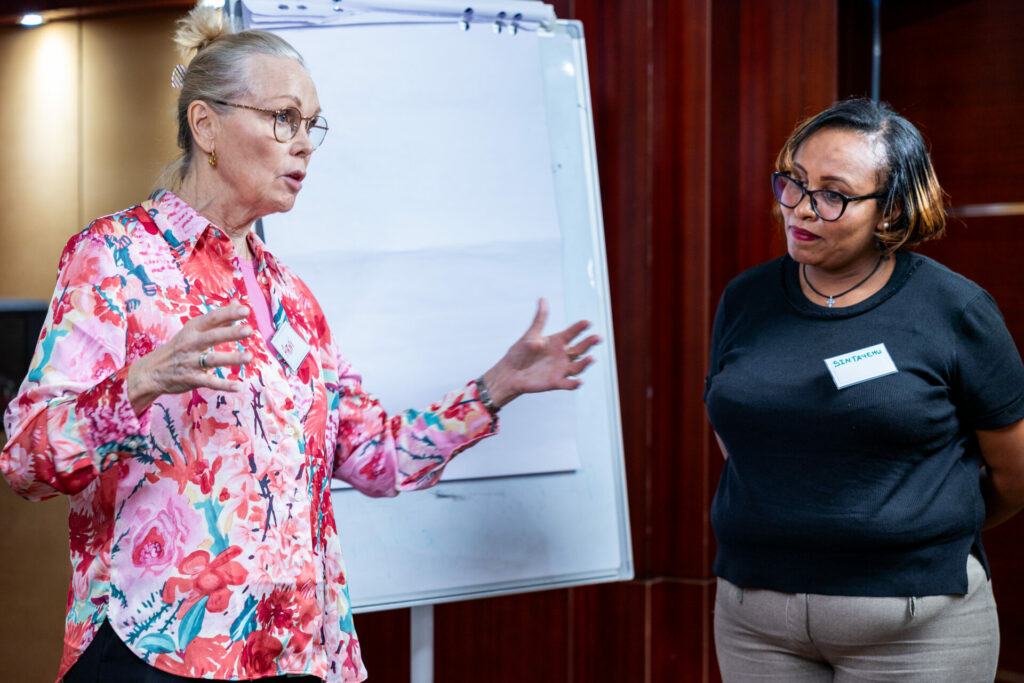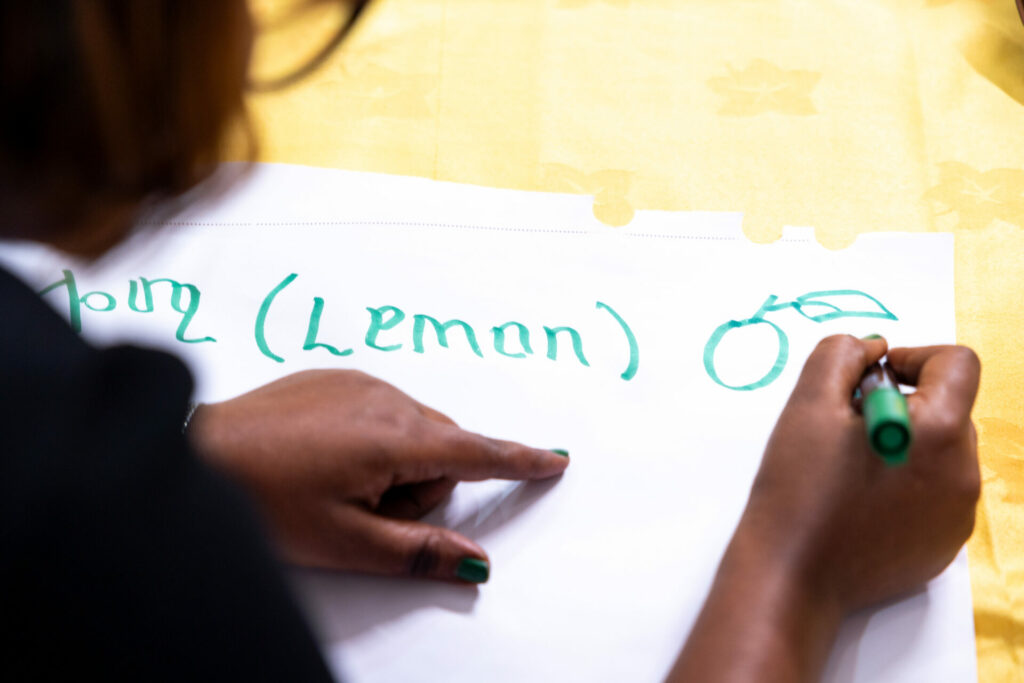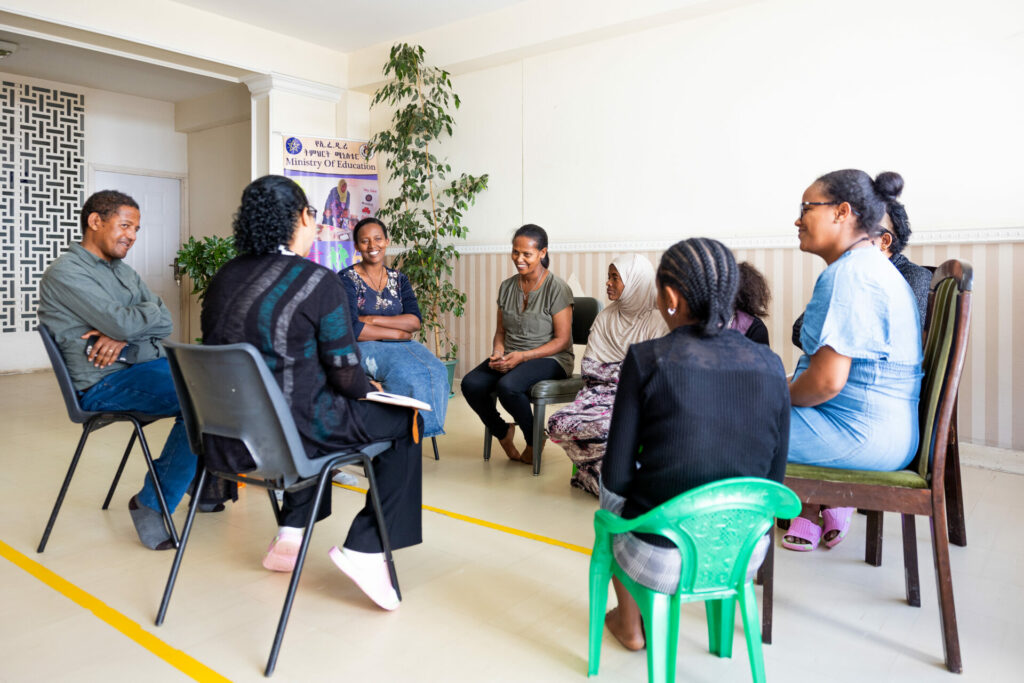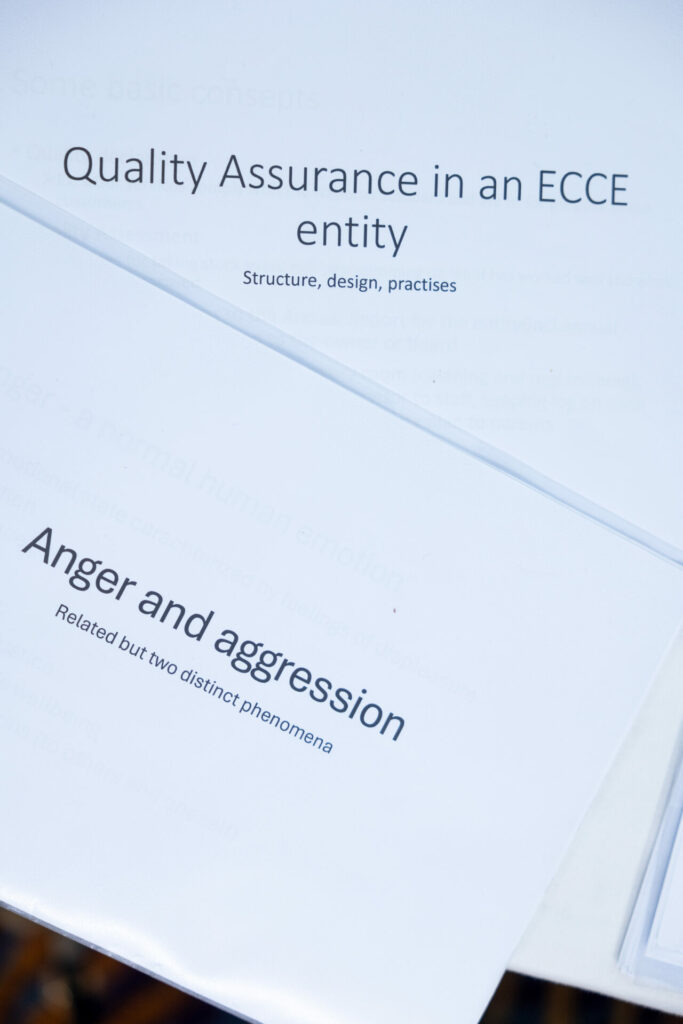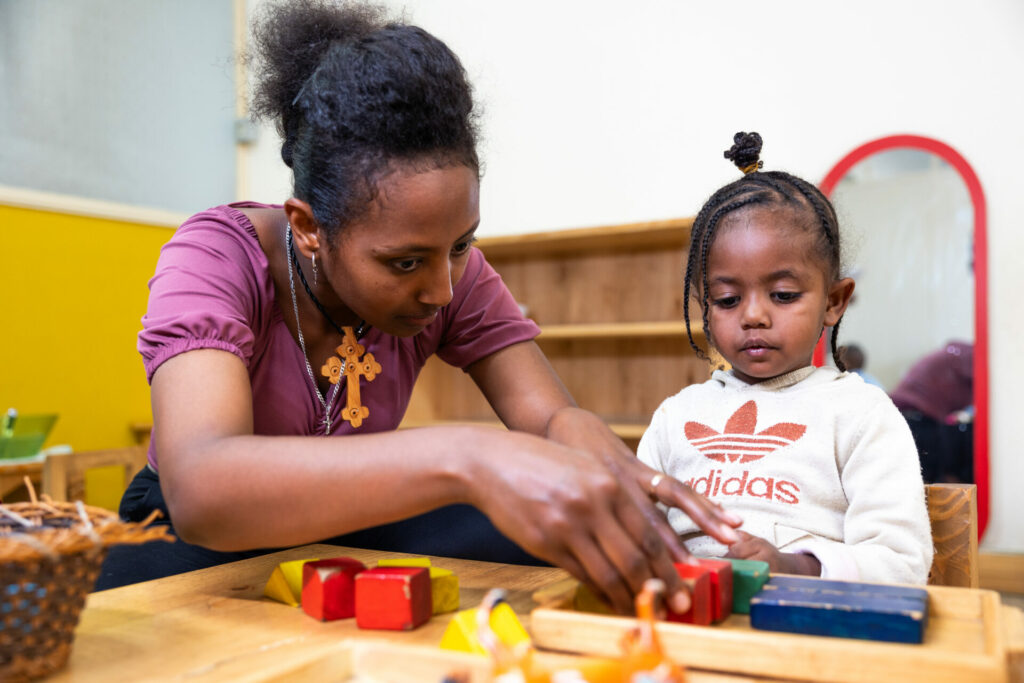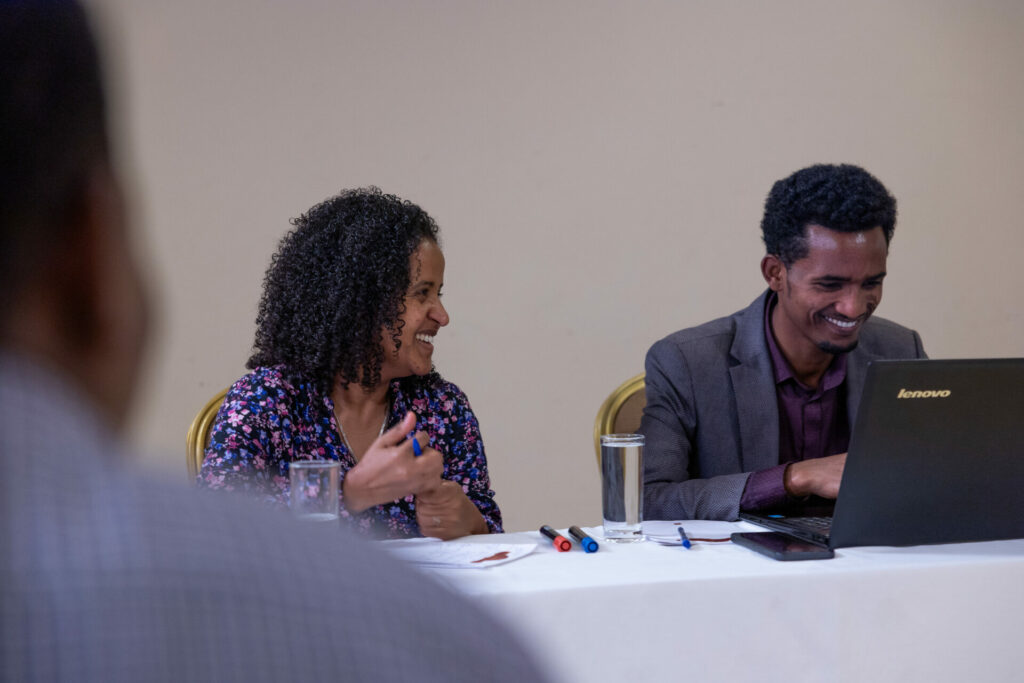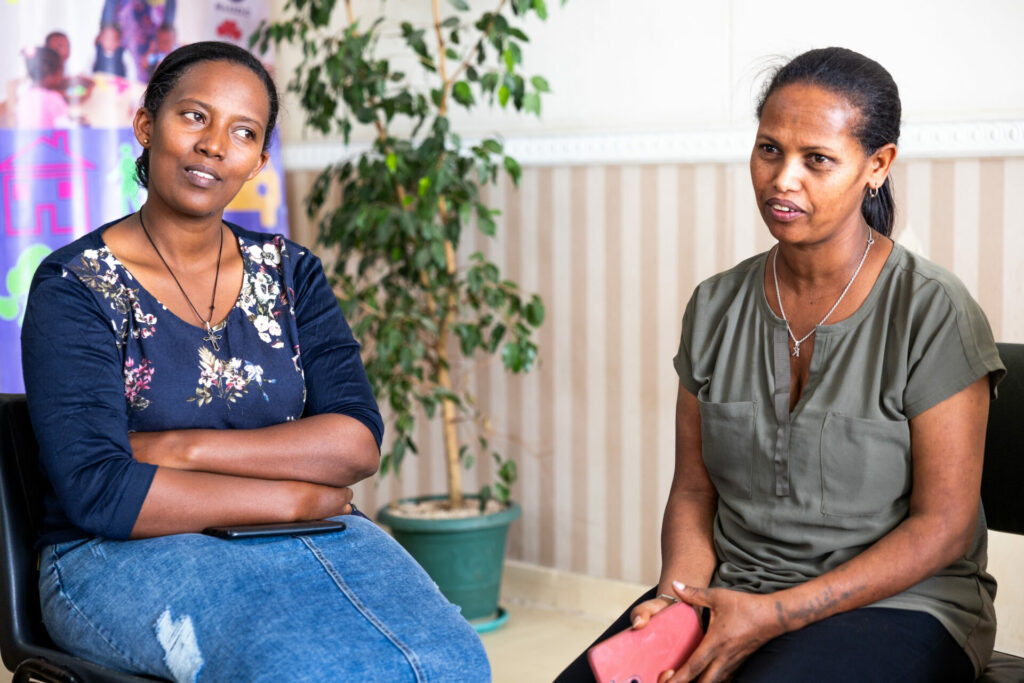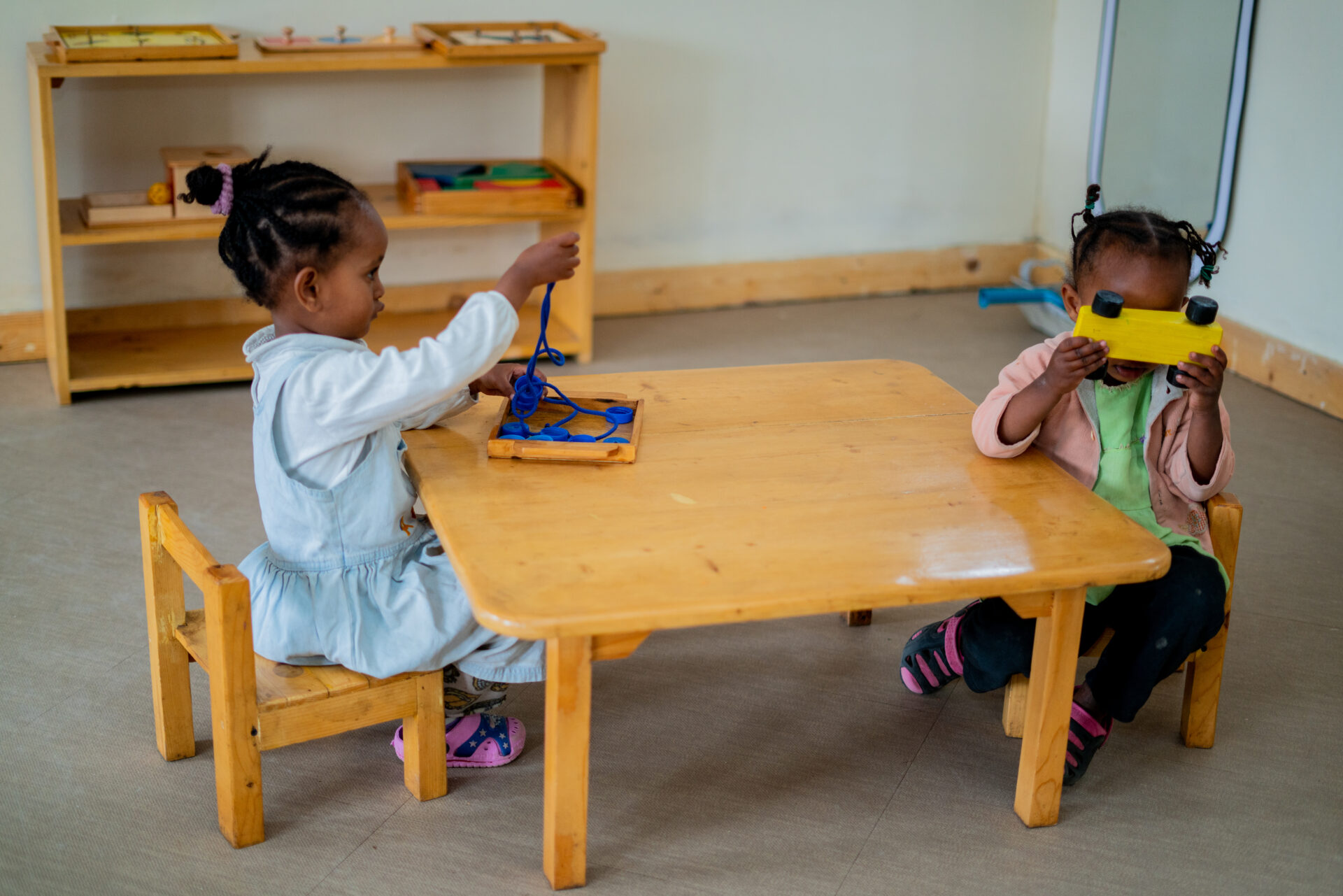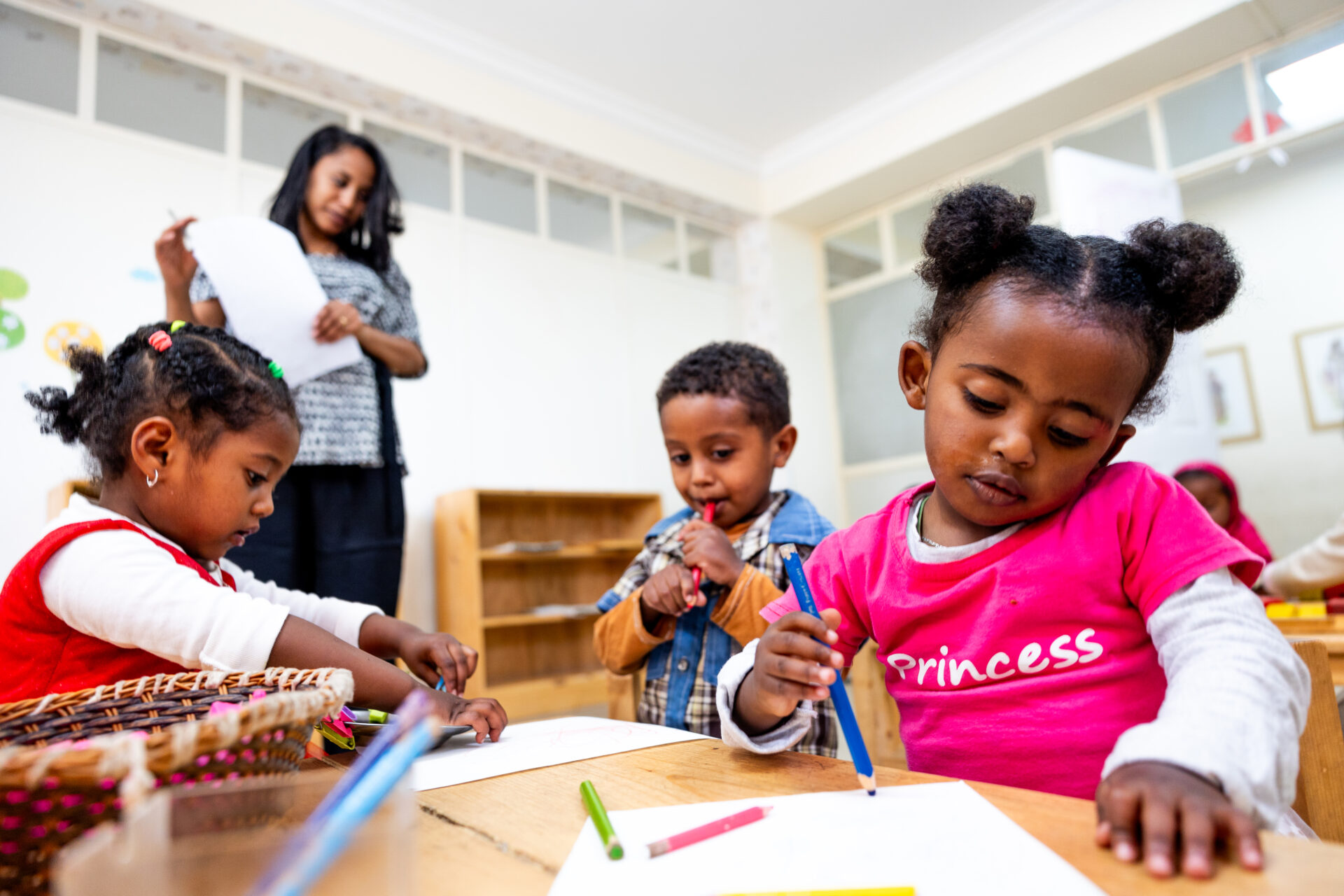
Quality Assurance
The Concept
In assistance of the Ethiopian and Addis Ababa governments the project enhances the quality assurance system in Ethiopia’s childcare sector because the potential of early childhood care and education is only fully realised if the quality is high. It began with the creation of a national standard on centre-based care and has come to include a variety of activities, underpinned by the establishment of a local ECCE Expert Group. This group of Ethiopian ECCE professionals, from pedagogues and parenting specialists to doctors and architects, is the backbone of all our activities.
The Challenge
The absence of a legal ECCE framework in Ethiopia led to uncoordinated efforts in quality control and licensing. This prompted the development and adoption of a national ECCE standard, alongside a comprehensive mapping to ascertain the existing landscape of childcare services. Furthermore, the enduring disparity in childcare centre proliferation
between Addis Ababa and other Ethiopian regions underscores a critical gap in awareness, competency, and funding. To bridge this divide, the project provides training for regional decision-makers and media to promote the regional adoption of national standards and catalyse the establishment of quality childcare centres across the country.
The Solution
The establishment of the expert group provides the Ethiopian Government, and other relevant stakeholders, with a highly competent hands-on resource. It also serves as an entry point for engaging international ECCE experts and ensures local capacity is continuously
expanded. Together, we are working on the establishment of an occupational standard for ECCE staff to ensure workers’ rights and fair compensation, alongside a technical steering committee to foster coordination among various ECCE stakeholder. The result is to foster
the growth of a well-informed, competent, and standardised childcare sector.
67 childcare centres have received regular follow up.
Staff received on-the-job training, manuals, and continuous support to improve children’s routines and activities. A significant challenge was management support, which the Ministry of Women and Social Affairs helped resolve. PfC plans further manager training in 2024 to address this issue.
469 assistants have received on the job-training in total.
The expert group are the lead trainers of PfC’s ECCE courses, and the assistants receive support and training at their place of work to help them implement good routines and practices.
381 parents have received training on good parenting.
The parents were engaged in discussion about anger management, setting boundaries, screen time management, communication with childcare staff etc. Parents were equipped with skills and those that need one on one counselling and discussion services after trainings were approached separately.
451 children have been reached through the programme in 2023
These children are attending centers that fulfil the standard and are taken care of by well trained staff. This brings the total children reached in 2022 and 2023 to 1051
3 Government Steering Meetings organised.
PfC is the sole NGO representative on the Centre-based Childcare Steering Committee primarily organised by the Ministry of Women and Social Affairs. During these engagements, PfC played a key role in advocating for finalising the childcare standard, curriculum development for training childcare staff and quality assurance.
